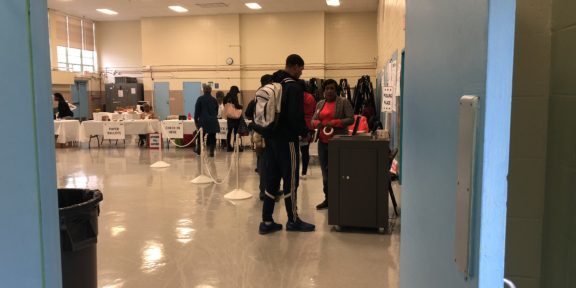Today in Howard University’s Rankin Memorial Chapel the Center for American Progress presented a policy forum entitled, Beyond 2004: The Future of the Black Vote.
The center is launching Campus Progress, an effort to promote student progressivism and counter conservative influence on college campuses.
Rev. Al Sharpton and Armstrong Williams were among the featured panelists who outspokenly tackled issues affecting Blacks and other underepresented populations.
Key issues such as student activism, affirmative action, and black ownership dominated the discussion, with the underlying theme being the legacy of economic and social inequality in America.
"Affirmative action has not worked in the last 30 years. We don’t need affirmative action. [Acceptance into universities] should be based on merit. And if you can’t get there based on merit, you don’t belong there," said Armstrong Williams, CEO and president of the Graham Williams Group.
Rev. Al Sharpton fired back by arguing that the existence of discrimination makes affirmative action necessary.
"The president sent the White House council to the Supreme court to argue against affirmative action," Sharpton said. He then went on to explain that the president did not meet the standards for graduate school or to become president, alluding to the 2000 presidential election.
Panelist Alexis McGill, Executive Director of Citizen Change, also stressed the importance of mobilizing the Hip Hop generation. Citizen Change, best known for its Vote or Die campaign, launched the initiative into the public eye by enlisting the help of Hip Hop artists.
"Our own personal success will be measured by our community’s success," McGill said.
Although college campuses may be thought of as linked with progressivism, the Center for American progress, a nonpartisan research and education institute, believes that right wing influence on campuses has been towering over liberal agendas.
According to a Washington Post article, the center will give $750,000 to nine liberal campus publications such as Princeton, Dartmouth, and the University of Wisconsin, while conservative campus organizations receive more than an estimated $30 million a year to further conservative causes.
Questions from students in the audience fueled the hotly debated issues, but the panelists had the opportunity to solidity their views though closing statements.
"We need to use the political system to make a change, not just fight with each other about our political views," said Gregory Moore, Executive Director of the NAACP National Voter Fund.


